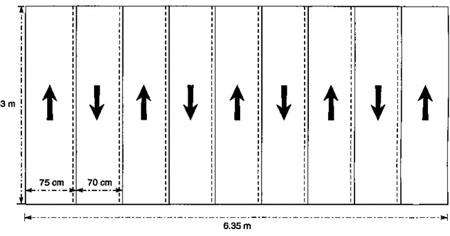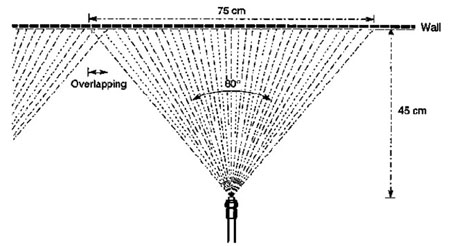10.8 Training of spray operators
The outcome of IRS is highly dependent on the quality of training given to spray operators. This training will be your responsibility.
You will get a national manual with detailed instructions on the training of spray operators.
The training should address spray techniques, environmental and human safety issues, as well as communication of key IRS messages (explained in Section 10.11). The spray operators should be trained to cover 19 m2 at a constant rate within one minute. This will allow the application of 40 ml of insecticide suspension per 1 m2 of sprayable surface; 1 litre of suspension covers 25 m2 when the nozzle tip is effectively kept at 45 cm distance from the spray surface.
The wall of a building can be used for practice. Mark an area 3 m high and 6.35 m long, divided into nine bands: the first band should be 75 cm wide and the remainder 70 cm wide (Figure 10.2). The spray nozzle will produce a swathe of spray 75 cm wide if kept at a distance of 45 cm from the wall (Figure 10.3).


10.7 Housing units and structures to be sprayed with insecticide
